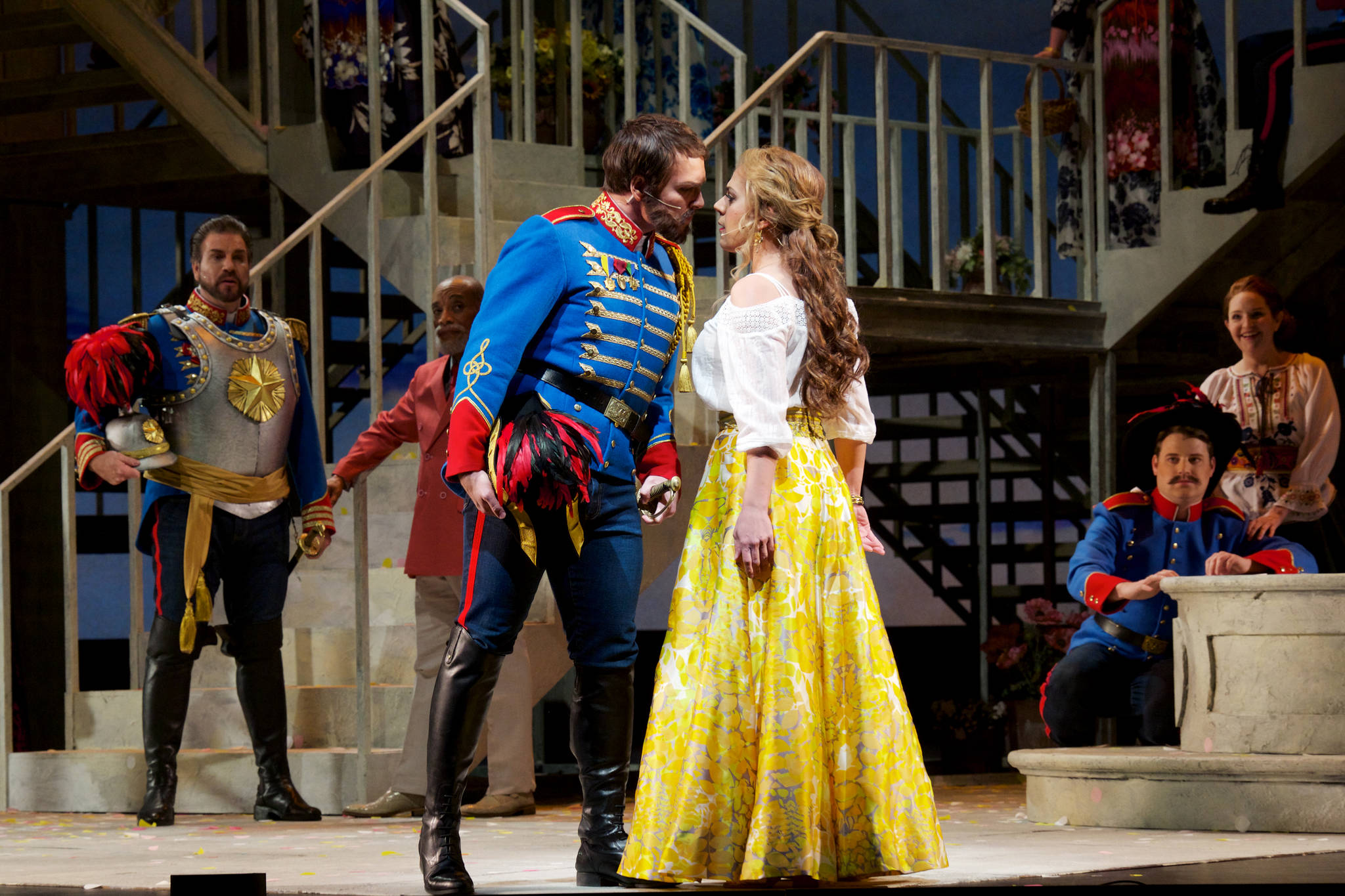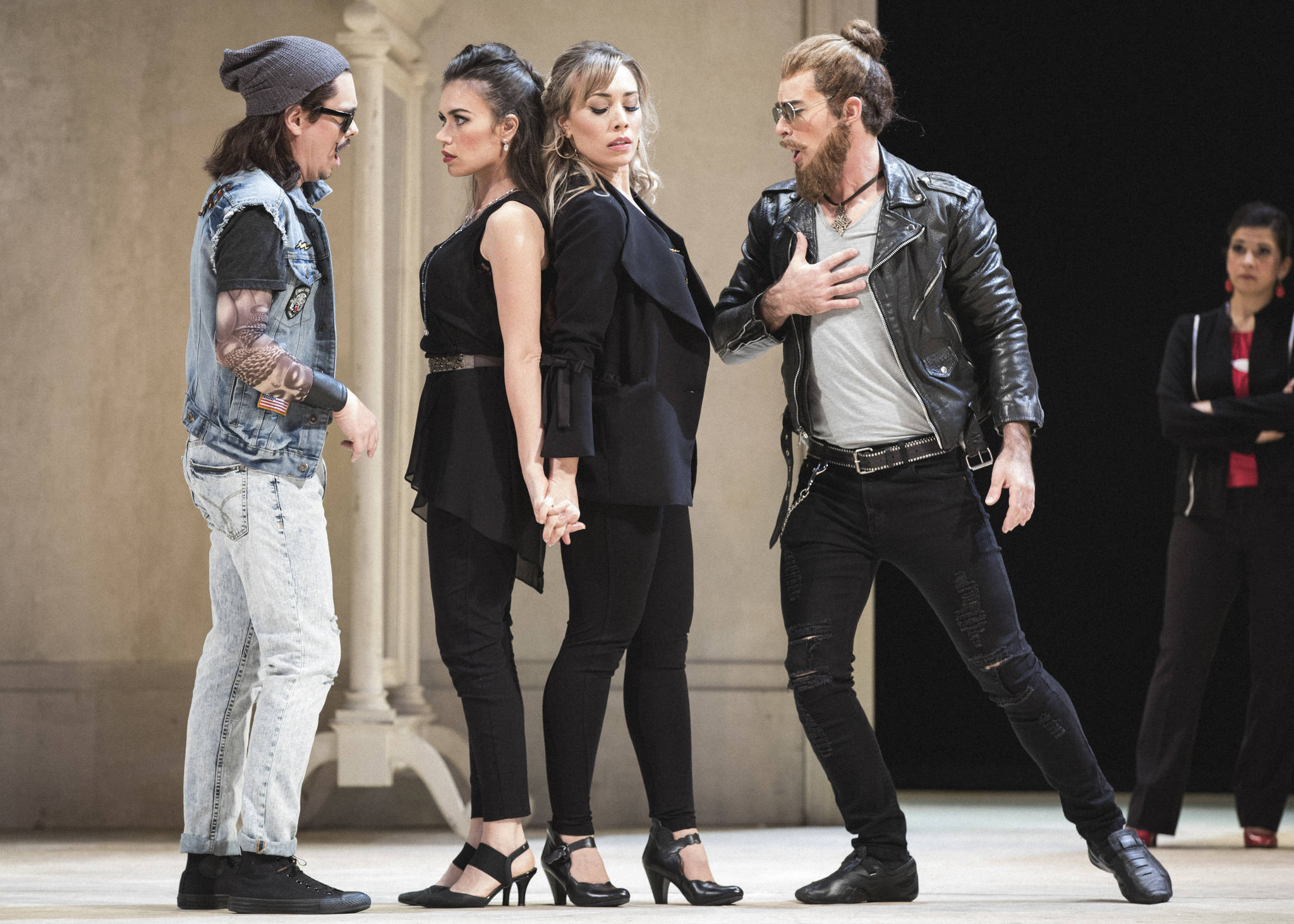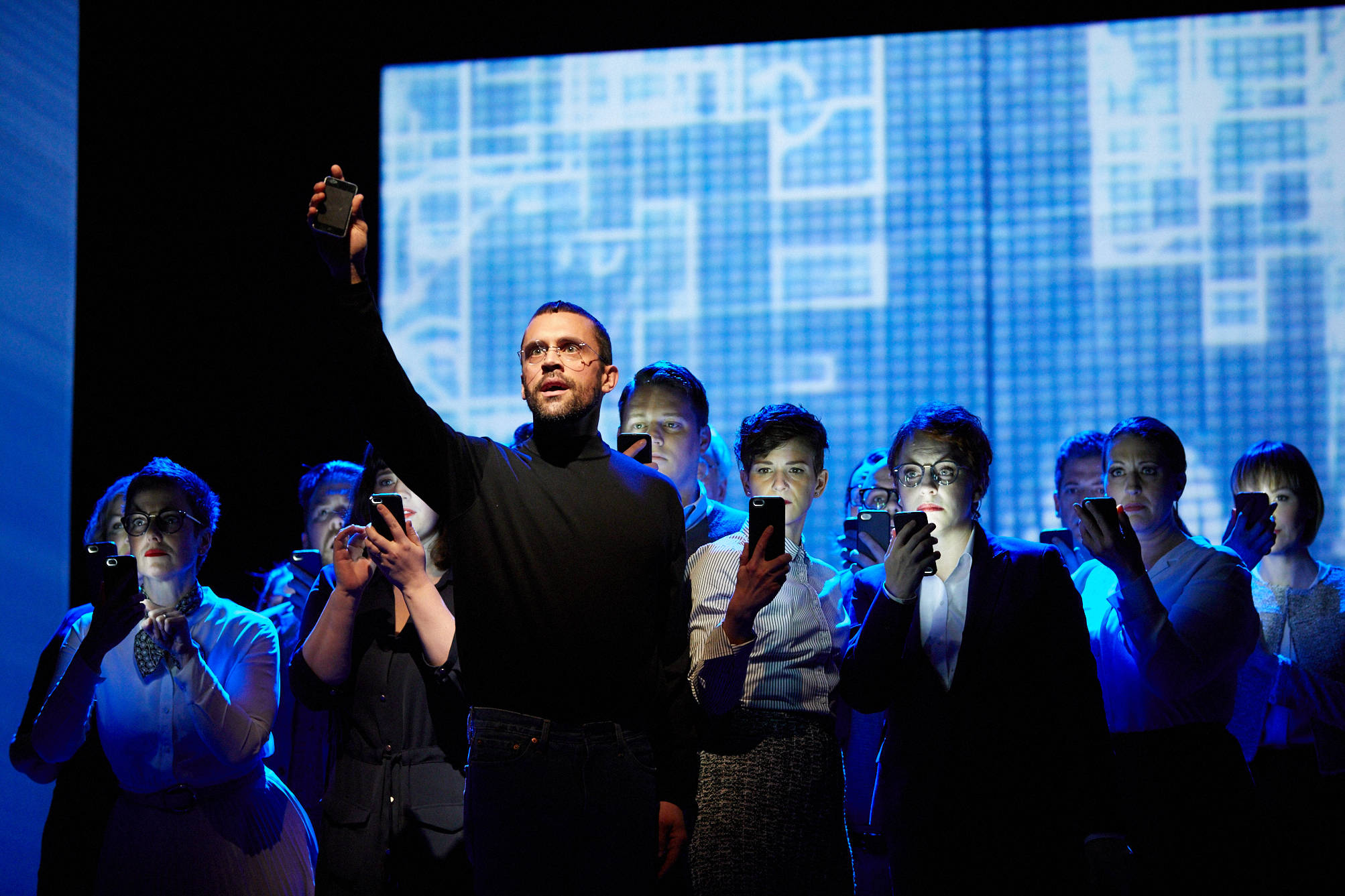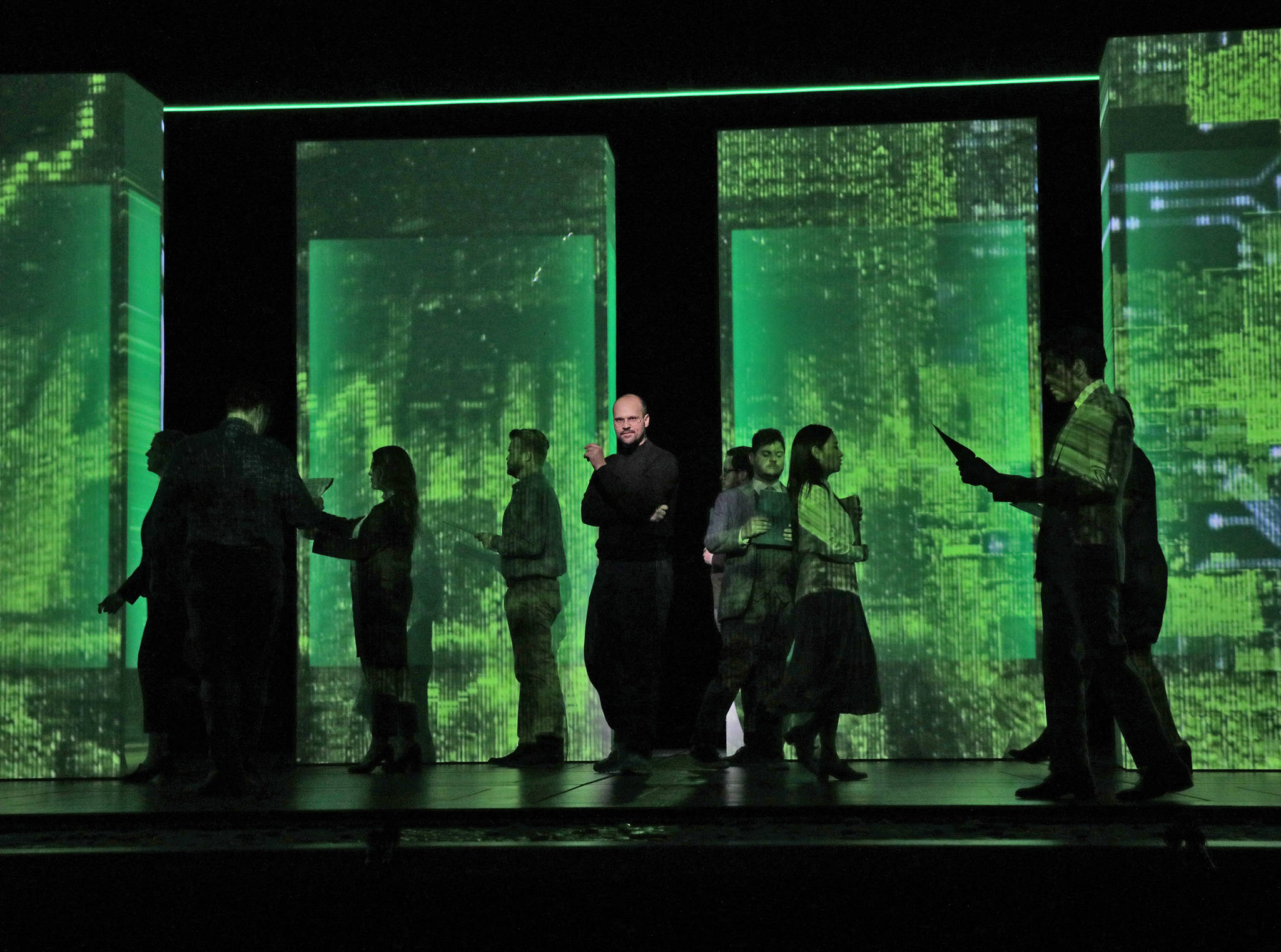Once the afterglow of Seattle Opera’s adorable Beatrice and Benedict has died down, you may be left, as I was, with a troubling question: Why isn’t Hector Berlioz’s comedy in the standard repertory? There’s more musical interest in any six bars of Berlioz’s 1862 score than in an entire Donizetti comedy, which are ubiquitous on the world’s opera stages. Seattle Opera’s skillful script-doctoring of what is admittedly a fairly slender piece may help it gain a foothold. Generally, I’m not a fan of tinkering with a score, but when the solution is to add rather than subtract, it’s hard to complain.
From his source play, Shakespeare’s Much Ado About Nothing, Berlioz retained only the main story thread, the two title characters who “never meet but there’s a skirmish of wit between them.” (The opera is part of the citywide Seattle Celebrates Shakespeare program.) Director John Langs and conductor Ludovic Morlot fleshed out a subplot with another pair of lovers, Claudio and Hero, borrowing from Shakespeare a scene in which Claudio is tricked into believing Hero unfaithful (which makes a affectingly bittersweet Act 1 curtain) and their later confrontation at what would have been their wedding. (The villain behind this deception, Don Juan, is included too as a non-singing part, and Brandon O’Neill makes him richly hissable.) A little music is added as well, all Berlioz, most notably a dramatic aria for Claudio (from his earlier opera Benvenuto Cellini). Shakespeare’s song “Sigh No More, Ladies” is cleverly set to the music of a brief aria from The Damnation of Faust and given to Somarone, the village music master. One short choral number is the third addition; a couple of the arias are slightly repositioned; and much of the spoken dialogue between the musical numbers comes straight from Shakespeare rather than from Berlioz’s adaptation of it. All this clocks in at about two hours; Berlioz’s original version must be barely 90 minutes, if that.
This is Seattle Opera’s third consecutive comedy of the season, and the contrast to the effortful Barber of Seville and Cosi fan tutte is like night and day—a sunshine-drenched day in Italy, to be exact. Langs and Morlot did a masterful job of making a full meal out of Berlioz’s tasty hors d’oeuvres, preserving the dash and insouciance of the original; the added pathos and drama enrich it without cluttering it. Not all opera singers are comfortable with spoken dialogue—with straight acting—and the four principals especially deserve a lot of credit for making even the longest musicless scenes work: Craig Verm as Claudio, Shelly Traverse as Hero (replacing Laura Tatulescu for the rest of the run due to illness), Daniela Mack as Beatrice, and Alek Shrader as Benedict. Shrader is, refreshingly, charming throughout; in the era of #MeToo, it’s a relief to see this production avoid the misogynist trope of making the heroine inexplicably fall for a jerk.
Matthew Smucker’s multi-level set, all bridges and spiral staircases, is as light as lacework; Deborah Trout’s costumes splash color everywhere. Langs has a fantastic eye for simple yet powerful scenic effects; I won’t spoil the surprise of what happens at the thwarted wedding. The best sight gag comes during Hero’s luscious Act 1 aria, interrupted at the end by a regiment of soldiers jogging past, ending in a gallant gesture from Claudio. Dramaturgically, everything works; technically, only about 50 percent of the spoken words overall come through, and the blame should be divided between the sound system (the singers are miked, we’re told, only for their dialogue) and, unavoidably, McCaw Hall’s resonance (it was designed wet for music, not dry for theater). Maybe a little can go to the actors; some of them do talk fast. You may end up hoping that the spoken passages as well as the sung ones would be supertitled.
Beatrice and Benedict
Feb. 28 & March 3, 7, 9, & 10 at 7:30 p.m., McCaw Hall, $61–$199, seattleopera.org.
gborchert@seattleweekly.com









